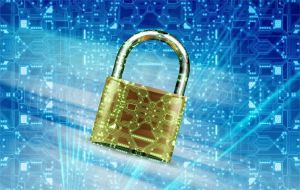
Introduction
The Internet is a powerful tool that allows us to connect with the world, access vast amounts of information, and facilitate numerous conveniences. However, like any powerful tool, it must be used with caution. This guide is designed to help beginners understand the basics of internet safety, including how to protect your personal information, avoid scams, and navigate the online world safely.
Understanding the Basics of Personal Information
What is personal information? Personal information includes details such as your full name, home address, phone number, email address, and financial information.
Why is it important to protect it? If this information falls into the wrong hands, it could be used for malicious purposes, such as identity theft, fraud, or harassment.
How to protect it? Be cautious about who you share your personal information with online. Only input this information into trusted websites with secure connections (indicated by “https” in the website URL). Be careful what you post online, any comment or image you post online may stay online forever, don’t post or send anything online or through your device that you would not want your grandma or future employer to see
Recognizing and Avoiding Scams
What are online scams? These are deceptive tactics used by individuals or organizations to trick you into giving away your personal or financial information. Common scams include phishing emails, fake tech support calls, and too-good-to-be-true online deals.
How to avoid them? Be skeptical of unsolicited communications asking for your personal information, even if they appear to be from a known company. Always verify the source before responding. Don’t click on suspicious links in emails or text messages. If you receive an email, text or message you’re not sure about, avoid clicking on any links in the message or opening any attachments.
Creating Strong Passwords
Why are strong passwords important? They protect your online accounts from unauthorized access.
How to create a strong password? Use a combination of upper and lower case letters, numbers, and special symbols. Avoid using common words or personal information. Consider using a reputable password manager to generate and store complex passwords.
Safe Browsing Habits
What does safe browsing mean? It refers to navigating the internet in a way that reduces risks and protects your personal information.
How to browse safely? Keep your browser and operating system updated. Use secure websites, make sure the website address starts with ‘HTTPS’ rather than ‘HTTP’ (the ‘s’ stands for ‘secure’) and has a padlock icon within the address bar and that the site doesn’t have spelling errors or overpowering advertising. Don’t download files or software from untrusted sources. Be cautious when using public Wi-Fi networks – avoid accessing sensitive information when connected to them.
Understanding Social Media Privacy
Why is social media privacy important? What you share online can be seen by many people and might remain on the internet forever.
How to protect your privacy on social media? Use the privacy settings provided by the platform to control who can see your posts. Be cautious about what you share – avoid posting sensitive personal information. Double check information you find online, fake news, misinformation, and disinformation are all over the internet, so do your own research to make sure what you read and see is true.
Protecting Your Computer and Mobile Devices
Why is this important? These devices contain a lot of personal information, and if they’re compromised, this information can be accessed.
How to protect them? Keep your operating system and apps updated. Install reputable security software. Lock your devices with a strong password or biometric feature (like a fingerprint or face scan).
Remember, the key to staying safe online is being aware and vigilant. Always think before you click, and when in doubt, err on the side of caution.

